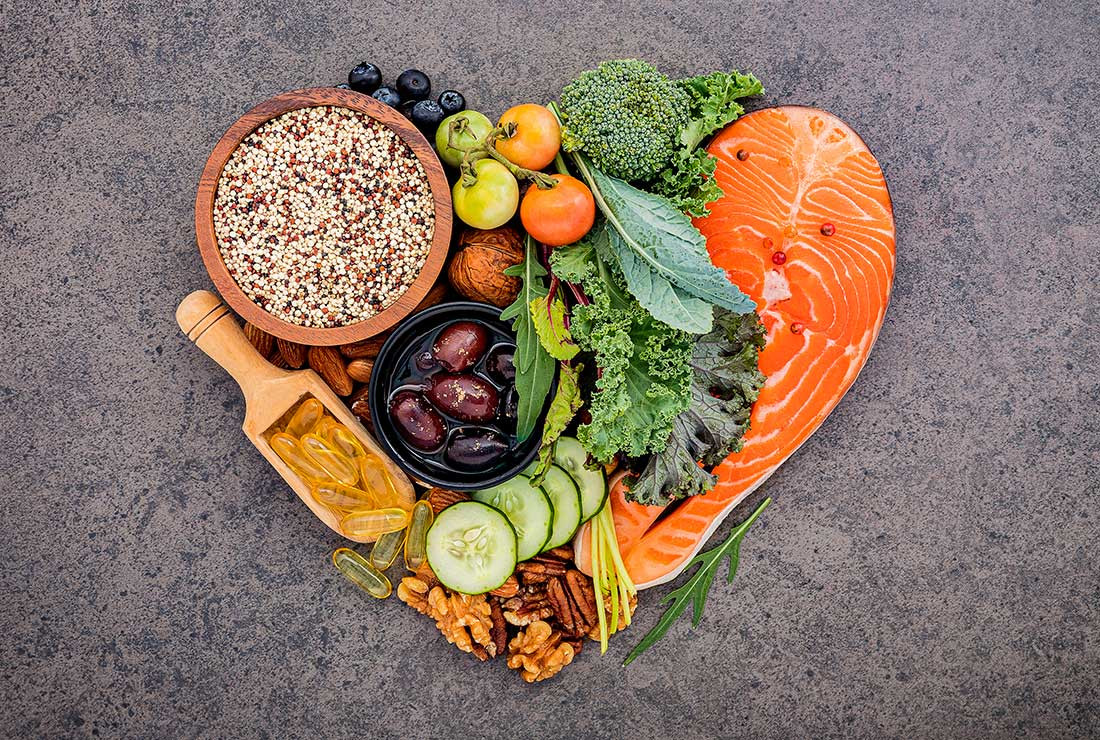All About Healthy Food: Advantages of Checking Out Plant Based Alternatives
The discussion surrounding plant-based diets has obtained significant attention in recent years. Several people are discovering the potential wellness advantages, nutritional benefits, and ecological influences related to these nutritional choices. As people come to be much more knowledgeable about their food's influence on well-being and sustainability, inquiries occur regarding the practicalities of adopting such a way of living. What certain adjustments can one anticipate, and just how might these options reshape not only individual health and wellness but also the world's future?
Recognizing Plant-Based Diet Plans
Although many individuals link plant-based diet plans mainly with vegetarianism or veganism, these diet regimens can incorporate a variety of consuming patterns that prioritize entire, minimally refined plant foods. Such diets often consist of fruits, vegetables, entire grains, beans, seeds, and nuts, while removing or limiting animal items. This flexibility enables individuals to tailor their nutritional selections according to nutritional requirements and individual preferences. Some may embrace a largely plant-based diet while still sometimes consuming meat or milk, typically described as a flexitarian strategy. The focus stays on integrating even more plant foods, which can bring about a diverse range of meals and tastes. Recognizing these various interpretations of plant-based eating is necessary for valuing its accessibility and appeal in contemporary food culture.
Health Advantages of Plant-Based Foods
The health and wellness benefits of plant-based foods are considerable, using a nutrient thickness benefit that sustains general wellness. Research study suggests that these foods can enhance heart health and wellness and play a crucial duty in reliable weight monitoring. By including extra plant-based alternatives, people might improve their dietary options and promote long-term wellness.
Nutrient Thickness Benefit
Nutrient thickness plays a necessary function in the health and wellness benefits of plant-based foods, making them a compelling selection for those looking for a well balanced diet plan. Plant-based foods, such as fruits, vegetables, legumes, nuts, and whole grains, are usually abundant in crucial vitamins, minerals, and anti-oxidants while being lower in calories. This high nutrient density allows people to take in fewer calories while still meeting their dietary requirements. Furthermore, these foods are packed with nutritional fiber, promoting gastrointestinal health and assisting in weight administration. By integrating nutrient-dense plant-based options, customers can improve their overall wellness, support their immune systems, and lower the danger of chronic conditions. Eventually, the nutrient thickness of plant-based foods emphasizes their importance in a health-conscious lifestyle.
Heart Wellness Improvement

Weight Monitoring Assistance
Along with advertising heart health, a plant-based diet regimen can significantly assist in weight administration. This nutritional approach stresses entire foods such as fruits, vegetables, beans, nuts, and whole grains, which are normally reduced in calories and greater in fiber compared to animal-based items. The high fiber web content assists increase satiation, lowering general calorie intake. Furthermore, plant-based diet regimens are typically rich in necessary nutrients while low in undesirable fats, making it much easier to maintain a healthy weight. Plant Based Chicken. Research study suggests that people who take on a plant-based way of life have a tendency to have lower body mass indexes (BMIs) and experience even more successful weight management compared to those that consume meat-heavy diets. Embracing plant-based choices is a tactical selection for efficient weight administration.
Nutritional Worth of Plant-Based Components
Plant-based active ingredients are abundant in essential nutrients, providing a varied selection of vitamins, minerals, and anti-oxidants that contribute to total health. A comparison of healthy protein resources reveals that while animal items are often deemed exceptional, several plant-based choices offer ample protein and various other valuable compounds. Recognizing the dietary value of these active ingredients can help individuals make informed dietary selections.
Vital Nutrients in Plants
Nutrient-rich ingredients located in plants supply a diverse range of crucial minerals and vitamins that contribute substantially to total health. These components are rich in vitamins A, C, and K, which sustain immune feature, vision, and blood clotting, specifically. On top of that, plants offer important minerals such as magnesium, calcium, and potassium, important for heart health, muscle feature, and bone strength. The existence of fiber in plant-based foods aids digestion and advertises a healthy gut microbiome. Antioxidants, discovered generously in fruits and veggies, aid combat oxidative tension and reduce inflammation. Lots of plant foods are low in calories yet high in nutrients, making them an outstanding option for those looking for to preserve a healthy weight while ensuring excellent nutrient intake.

Contrasting Protein Sources
Protein sources vary significantly in their nutritional profiles, with plant-based components using one-of-a-kind advantages. Unlike pet proteins, which typically include saturated fats and cholesterol, plant healthy proteins tend to be reduced in these undesirable elements. Legumes, nuts, seeds, and whole grains are rich in essential amino acids, fiber, vitamins, and minerals. For instance, lentils give high healthy protein web content alongside significant iron and folate, while quinoa is a full protein, supplying all nine important amino acids. Additionally, plant-based proteins are commonly come with by antioxidants and phytochemicals that support total wellness. The change to plant-based healthy protein sources not only improves dietary consumption however additionally straightens with sustainable dietary techniques, reducing environmental impact and advertising long-term health and wellness benefits.
Ecological Influence of Plant-Based Consuming
As recognition of climate change grows, many people are discovering lasting nutritional selections that can significantly minimize their environmental footprint. Plant-based eating has emerged as a substantial factor to lowering greenhouse gas emissions, which are primarily connected with animals production. The growing of fruits, legumes, grains, and veggies usually needs less resources, such as water and land, compared to pet farming. In addition, plant-based diets can result in lowered deforestation, as much less land is required for grazing livestock or growing pet feed. By shifting in the direction of plant-based alternatives, consumers can sustain biodiversity and promote healthier ecological communities. Overall, accepting plant-based eating not only advantages individual health and wellness yet also stands for a vital step toward ecological sustainability and conservation initiatives.
Overcoming Common Misconceptions
While lots of individuals recognize the advantages of a plant-based diet, several misunderstandings frequently prevent them from fully embracing this lifestyle. A common idea is that plant-based diet regimens do not have sufficient healthy protein; nevertheless, countless plant resources, such as beans, nuts, and tofu, supply adequate protein. Furthermore, some assume that this diet is expensive, when in reality, staples like beans, rice, and seasonal veggies can be quite affordable. An additional mistaken belief is that plant-based consuming is overly limiting, whereas it really uses a diverse variety of foods and tastes. Several worry that a plant-based diet regimen may lead to shortages, yet with proper planning, individuals can obtain all needed nutrients, including minerals and vitamins, while appreciating a wide variety of scrumptious meals.
Tips for Transitioning to a Plant-Based Way of living
Making the shift to a plant-based way of life can be an enriching experience, though it commonly needs some assistance to navigate the first adjustments. First, individuals are urged to start slowly, integrating even more fruits, veggies, vegetables, and whole grains into their meals while reducing meat and dairy consumption. Dish planning is necessary; preparing a weekly food selection can aid alleviate the change and prevent final undesirable choices. Discovering new recipes and cooking techniques can likewise keep and enhance the experience enjoyment regarding plant-based consuming. Furthermore, joining support system or communities can offer inspiration and share beneficial ideas. Ultimately, staying informed about nourishment guarantees balanced meals, preventing shortages while promoting a healthy and balanced, satisfying plant-based way of living.
Delicious Plant-Based Dish Ideas
Exploring delicious plant-based meal concepts can influence people to welcome a more nourishing diet. One preferred alternative is a passionate quinoa salad, including cherry tomatoes, cucumber, and a spicy lemon-tahini clothing. Another fave is a mouthwatering lentil stew, packed with carrots, celery, and great smelling natural herbs, ideal for a soothing dinner. For morning meal, overnight oats made with almond milk, chia seeds, check this and covered with fresh berries supply a nutritious beginning to the day. In addition, a vibrant veggie stir-fry with tofu and a selection of colorful veggies can be a fast yet pleasing dish. Luscious avocado toast on whole-grain bread, sprayed with spices and seeds, offers a simple yet savory treat. These meals showcase the variety and splendor of plant-based eating.

Regularly Asked Inquiries
Can a Plant-Based Diet Plan Give Enough Healthy Protein?
The question of whether a plant-based diet plan can offer adequate healthy protein is usual. Numerous sources, including legumes, nuts, seeds, and whole grains, can fulfill healthy protein requires properly, supporting a healthy and balanced diet regimen for individuals.
Are Plant-Based Diets Suitable for Children?
The viability of plant-based diet plans for kids relies on careful preparation. Appropriate nutrients have to be guaranteed, consisting of healthy proteins, vitamins, and minerals. With correct support, such diet plans can sustain healthy growth and advancement in kids.
Exactly how Do I Eat in restaurants on a Plant-Based Diet plan?
Eating out on a plant-based diet involves looking for restaurants with diverse menus, requesting my site for adjustments, and exploring vegan-friendly options. Planning in advance and communicating dietary preferences can improve the dining experience while keeping nutritional selections.
What Are Common Allergens in Plant-Based Foods?
Common allergens in plant-based foods include soy, gluten, nuts, and seeds - Plant Based Chicken. Individuals complying with a plant-based diet plan ought to be mindful of these irritants and review labels carefully to see here avoid damaging responses and ensure safe consumption
Can Plant-Based Diets Assist With Weight-loss?
Research shows that taking on a plant-based diet plan may assist in fat burning due to its commonly reduced calorie density and higher fiber content. This combination can boost satiety, assisting individuals handle their calorie consumption properly. Numerous people connect plant-based diet plans generally with vegetarianism or veganism, these diet regimens can incorporate a wide array of consuming patterns that prioritize entire, minimally processed plant foods. Nutrient density plays an important function in the wellness benefits of plant-based foods, making them a compelling selection for those looking for a well balanced diet. Plant-based diet regimens have been shown to markedly boost heart wellness, as they frequently contain components that support cardiovascular feature. In addition to promoting heart health and wellness, a plant-based diet plan can significantly help in weight management. An usual belief is that plant-based diet regimens lack adequate protein; nonetheless, many plant sources, such as beans, nuts, and tofu, supply sufficient healthy protein.
Comments on “Mouthwatering BBQ Sauces That Pair Perfectly with Vegan Proteins”